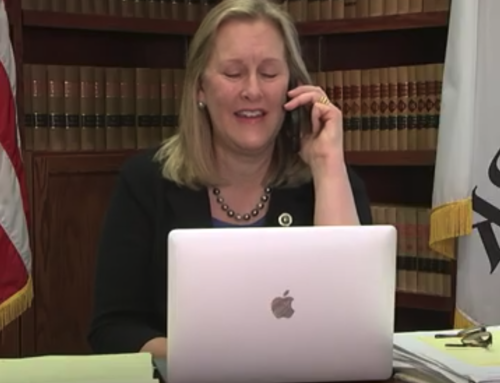Mayors and other municipal officials from the Chicago metro region packed the IL Senate Appropriations hearing on the FY 2016 State budget in Chicago on March 9, 2015. Mayor Jim Holland of Frankfort, the Mayors Caucus Board Secretary, offered the following testimony at the hearing:
Mayor Jim Holland, Village of Frankfort
Testimony Before Senate Appropriations Committees
Monday, March 9, 2015
Chairwoman Steans, Chairman Kotowski, members of the two Senate Appropriations Committees, thank you for your time this afternoon. My name is Jim Holland. I am the Mayor of Frankfort, a community of 18,000 people in the southwest suburbs of Chicago. I am the President of the Will County Governmental League, one of the Chicago area’s Councils of Governments and I am the Secretary of the Board of the Metropolitan Mayors Caucus, a membership association of mayors from the 273 cities, towns and villages in the Chicago metropolitan region.
As a mayor, I was pleased to hear our Governor speak of taking what he called a responsible path after years of what he also called financial recklessness. His comments about reducing spending where there has been financial recklessness make sense. He spoke of relief from unfunded mandates, pension reform and workmen’s compensation reform. Local governments want to help our state legislators and Governor with reforms that bring real savings to all the people of Illinois.
But, then I heard him propose reducing the Local Government Distributive Fund by 50%. This action, by itself, would not reduce any government spending. It would not solve a financial problem for the people of Illinois. It would just mean that instead of the state being short of money, the local governments would be short of money. It would merely transfer a state fiscal problem to local government. How does this solve anything for the people of Illinois? Illinois residents deserve better.
As a representative of the Metropolitan Mayors Caucus, I ask you to consider these six points as you review the Governor’s proposals.
First, the local share has been an important revenue stream for municipalities since the income tax was first implemented in 1969. It should not be viewed as a windfall or extra money for local governments. LGDF funds comprise about 14 percent of the average municipal budget. In Frankfort, where we have significant sales tax revenue, the 50% reduction would see us lose $866,000 or the equivalent of 7of our 29 police men and women. The loss would be bad enough in Frankfort, but for some communities, the loss would be devastating.
Second, local governments across our State are still feeling the effects of the 2008 recession. To balance our budget during the 2008 recession Frankfort eliminated three out of eight department head positions by consolidating departments and we eliminated most of our building department personnel. For Frankfort and most local communities, there is no place left to cut except in the areas of public safety and basic day-to-day services like snow plowing, street maintenance and water and sewer service.
Third, a property tax freeze that was also proposed by the Governor would make it nearly impossible for communities with little to no sales tax base to replace the proposed reduction in LGDF with new revenue.
Fourth, this potential freezing of property taxes would likely have a negative impact on Illinois municipal bond purchases. Bonds are backed by the ability of municipalities to impose property taxes. If property taxes are frozen, Illinois municipal bonds will take on significantly more risk which will increase borrowing costs.
Fifth, most Illinois residents understand where their local government spends its money. They know it goes for the local police and firefighters, snow plowing, road maintenance, water service and garbage collection. LGDF money provides residents with tangible benefits from state taxes.
Sixth, municipalities and their organizations such as the Metropolitan Mayors Caucus stand ready to work with the legislature and governor on municipal public safety pension reform, workmen’s compensation reform, unfunded mandate reforms and public safety employee benefit act reforms. These are areas in which significant savings can be achieved for all the people of Illinois while maintaining fair programs and fair compensation. We should be helping each other solve Illinois’ fiscal problems. Call on us. Ask us to help. But please do not just transfer a portion of the state’s fiscal problem to local government.
Thank you for your time this afternoon.



